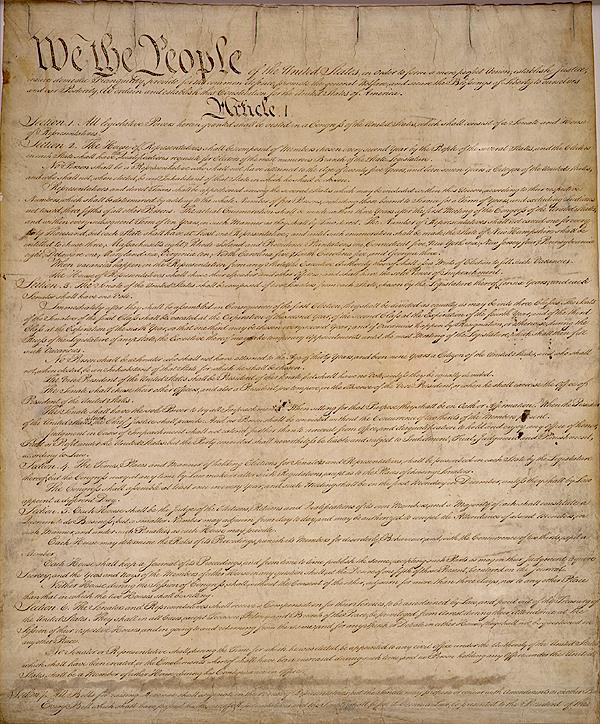Media
National Popular Vote: Radical Shift in Elections
 Yesterday, the House Republic Policy Committee held a hearing on National Popular Vote (NPV). If passed, Pennsylvania would join a compact of states agreeing to award their electoral votes to the presidential candidate who has the most national popular votes, regardless of how that candidate performed in the state. The compact would kick in when states with 270 electoral votes join. For more on this proposal, check out Save our States.
Yesterday, the House Republic Policy Committee held a hearing on National Popular Vote (NPV). If passed, Pennsylvania would join a compact of states agreeing to award their electoral votes to the presidential candidate who has the most national popular votes, regardless of how that candidate performed in the state. The compact would kick in when states with 270 electoral votes join. For more on this proposal, check out Save our States.
Here are handful of reasons this legislation would have a negative impact on Pennsylvanians:
NPV would disenfranchise Pennsylvania voters. A presidential candidate that wins the national popular vote would win Pennsylvania’s electoral votes regardless of how well he or she does in our state. In an extreme case, a candidate could get all of Pennsylvania’s electoral votes without a single Pennsylvania voter supporting them. But a likely scenario would be awarding Pennsylvania’s electors to a candidate that did poorly or did not even campaign in the Keystone State.
NPV could result in disputes over who won a presidential election. If the Florida recount in the 2000 presidential elections seemed chaotic, imagine a nationwide recount in an extremely close election. In fact, there isn’t even an official measure of the national popular vote, only one done by combining individual state results. Worse yet, there is no provision for recounting votes in a close election. Nor is there any way to require states that failed to join NPV submit to a recount.
Different states have different election laws. The Pennsylvania House is set to vote on photo ID legislation, a bill they previously passed and the Senate passed with amendments. The chief argument for this requirement is to protect against voter fraud. Yet while 15 states currently require photo ID, 19 states have no identification requirement at all.
Further, while Pennsylvania requires voters to register 30 days in advance of an election, some states have same-day registration provisions. Washington and Oregon allow all voters to mail in ballots. Another 32 states allow early voting. These provisions make it easier to vote, increase turnout, and arguably make voter fraud easier. Whether or not you support or oppose these election laws, joining the NPV compact would make Pennsylvania subject to the laws of other states.
The NPV agreement is a way to circumvent the Constitution. While the idea of eliminating the Electoral College through a constitutional amendment has been around a long time, this proposal tries to get around the amendment process. Indeed, at a press conference in Harrisburg last October, NPV advocates responded to a question about why they were pursuing the compact instead of a constitutional amendment by noting, “it is a far easier way to accomplish state by state, which is how the Constitution is set up anyway, than it is to go through a constitutional amendment process,” (emphasis added).
But it is difficult to amend the Constitution for good reason—and yet states have ratified 27 amendments. This effort to get around that process threatens our constitutional republic. Thankfully, even if several other populous states join the NPV agreement, Congress can render the compact void under Article I, Section 10, which requires Congressional consent for interstate compacts.
The Electoral College works well. NPV is designed to eliminate the Electoral College, largely on the grounds that popular vote seems simpler, and more “democratic.” But our nation is not a pure democracy, it is a Constitutional Republic. The Electoral College serves to protect the federalism embodied in our Constitution, preserving political power in states, and by doing so, protecting individual liberty.
Moreover, the Electoral College ensures that a candidate must appeal across the nation, rather than racking up support in populous states or regions. National Popular Vote would allow candidates to focus on regional issues, or votes in population centers, rather than making a broad national appeal. While the Electoral College requires a candidate to win a majority of electoral votes, there is no such popular vote threshold under NPV.
In short, the National Popular Vote compact represents a radical, dangerous, and ill-conceived shift in our election process.